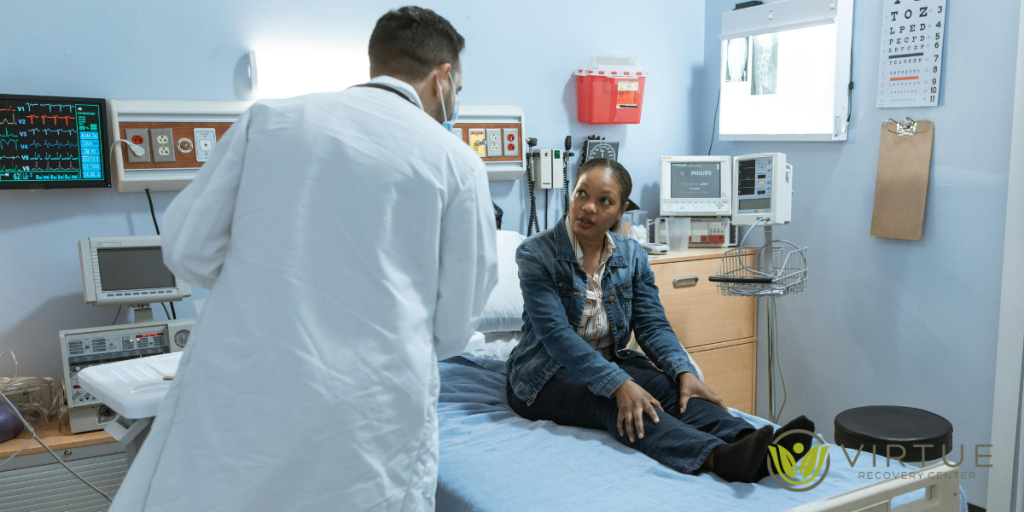Key Takeaways:
- Residential rehabs are safe, welcoming, and structured places for LGBTQIA+ people who want to get over their cocaine addiction.
- Specialized treatment programs help LGBTQIA+ people deal with both their substance use and the unique emotional problems they face.
- Detox is the first and most important step in getting over an addiction, and it should be done under medical supervision for safety.
- Long-term sobriety depends on internal support programs like group therapy and mental health services that are open to everyone.
- Having access to nearby residential rehabs near me that are LGBTQIA+-friendly and supportive can greatly improve the chances of recovery.
Introduction
It can be hard to find residential rehabs nearby that are specifically designed for the LGBTQIA+ community and offer safe, non-judgmental care, but it’s very important. For people who are addicted to cocaine, a focused and inclusive approach is necessary for a successful detox and long-term recovery. When identity and substance use come together, they create unique problems, especially when you add in the stigma, discrimination, and mental health issues that LGBTQIA+ people face more than other groups. People who are LGBTQIA+ are more likely to become addicted because of systemic pressures and a lack of access to supportive healthcare. Research shows that adults who are lesbian, gay, or bisexual are more than twice as likely to use illegal drugs as adults who are straight. Access to specialized and caring care, like what is offered at LGBTQIA+-friendly residential treatment centers, can make a big difference in recovery outcomes. This blog looks at how these kinds of programs can help people safely get off cocaine and stay clean.Why Do LGBTQIA+ People Need Special Cocaine Detox Programs?
LGBTQIA+ people have unique emotional and social problems that can lead to substance use disorders, like cocaine addiction. Being rejected by family, discriminated against at work, or stigmatized by society can make feelings of loneliness and stress worse. Cocaine, as per the National Institutes of Health, is especially dangerous because it is a very short-acting stimulant that can make you feel very good. People may use it to escape these emotional burdens temporarily. Inclusion-focused substance use treatment helps fill the gap by giving people a sense of belonging and understanding that many general programs don’t. These specialized rehabs have trained staff who understand the unique experiences of LGBTQIA+ people and can respond with empathy, clinical knowledge, and cultural competence. Medical cocaine detox, especially in residential settings, makes sure that people are watched all the time to help with withdrawal symptoms like depression, tiredness, agitation, and thoughts of suicide. This is very important for LGBTQIA+ clients because they may be more likely to have more than one mental health problem, like anxiety or depression.
What Kinds Of Services Do Rehab Centers Offer To Support LGBTQIA+ People?
Virtue Recovery Las Vegas and other centers like it in Henderson, Las Vegas, Reno, Summerlin, and North Las Vegas offer a variety of services specifically for LGBTQIA+ people, making sure that every step of the detox and rehab process is both effective and welcoming. Here are some of the most important things they offer:- Cocaine detox programs with medical supervision
- Individual and group therapy with therapists who know how to work with LGBTQIA+ clients
- Yoga, art therapy, and mindfulness training are all examples of holistic care.
- Trauma-informed therapy that focuses on experiences related to identity
- Mental health services for people with more than one disorder
How Can Residential Rehabs Help People Who Are Recovering From Addiction Feel Less Alone?
One of the most powerful reasons people go back to drugs is that they feel alone, especially LGBTQIA+ people who often feel out of place in traditional rehab settings. Successful rehabilitation requires community-based healing models, support networks, and environments that affirm individuals’ identities. Group sessions that validate LGBTQIA+ experiences help people connect and feel less “other.” Programs like Combating Isolation in LGBTQIA+ Recovery are part of facilities that focus on building peer support systems that go beyond the rehab setting. Additionally, engaging in daily tasks, structured therapies, and activities that foster community helps clients rediscover joy, responsibility, and purpose, all of which are essential for maintaining long-term sobriety. Inclusion also means recognizing and respecting people’s names, pronouns, and personal histories, making clients feel valued and seen.What Part Does Long-Term Care Play In Long-Term Recovery?
Detoxing from cocaine is only the first step on the road to recovery. A long-term care plan that meets each person’s needs is necessary for long-term sobriety, especially for people in the LGBTQIA+ community. Clients transition to ongoing care models after completing detoxification. These may include inpatient rehab, outpatient therapy, sober living environments, and programs for alumni. The Cocaine Addiction Rehab Program and other similar programs use cognitive-behavioral therapy (CBT), dialectical behavior therapy (DBT), and dual-diagnosis treatment to make sure that both mental and physical health are taken care of. At places like Virtue Recovery Las Vegas, the Drug Detox Program includes ongoing monitoring and planning for aftercare. This whole-person approach helps clients learn more effective ways to manage stress, repair broken relationships, and regain control of their lives. The Office of Disease Prevention and Health Promotion also emphasizes the importance of integrated mental and behavioral health care for long-term success in substance use recovery.Are Multi-Substance Detox Programs Suitable for LGBTQIA+ Individuals Needing Cocaine Detox?
Multisubstance detox program options are increasingly recognizing the unique needs of LGBTQIA+ individuals. Tailored approaches that respect diverse identities ensure a supportive environment during cocaine detox. By addressing specific challenges and fostering community, these programs can enhance the recovery experience, promoting healing and resilience among participants.









